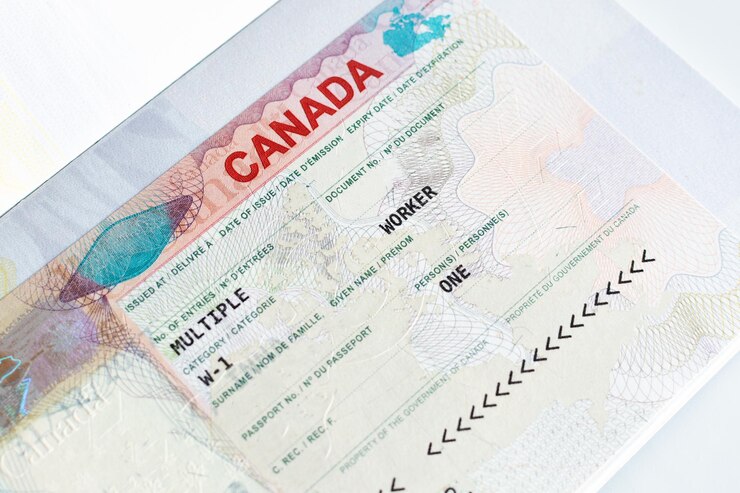
Talk to us?

Canada offers a variety of work permits tailored to meet the needs of different foreign workers and their employers. The two main categories are employerspecific work permits and open work permits.
An employer-specific work permit is linked to a particular employer, job, and location and requires a Labour Market Impact Assessment (LMIA) to ensure hiring a foreign worker will not harm the Canadian labor market. This permit restricts the worker to the specified job and location. In contrast, open work permits are not job-specific and do not require an LMIA. They allow foreign nationals to work for any employer in Canada, with some exceptions. Open work permits are commonly issued to spouses or partners of international students or skilled workers, participants in programs like International Experience Canada (IEC), and those applying for permanent residence under certain conditions.
EMIGRAT offers expert assistance and support for individuals seeking a work permit for Canada. Read More
An employer-specific work permit, or "closed work permit," has conditions such as job duration, employer's name, job role, location, and work periods, based on the job offer details provided by the employer. These permits are processed through two main programs: the Temporary Foreign Worker Program (TFWP) and the International Mobility Program (IMP).
Under the TFWP, employers address labor shortages by hiring foreign nationals if no qualified Canadians are available. Employers must first obtain a positive or neutral Labour Market Impact Assessment (LMIA) from ESDC. The LMIA details, including job conditions and employer specifics, are reviewed by IRCC or CBSA before issuing the work permit.
The IMP allows employers to hire foreign nationals without an LMIA. This program focuses on Canada’s economic and cultural interests. Employers must provide an offer of employment, pay a compliance fee, and submit information through the IRCC Employer Portal. The worker must include the offer number and proof of payment in their permit application.
The International Mobility Program (IMP) offers open work permits, which differ from employer-specific permits by allowing foreign nationals to work for nearly any employer in Canada.
Spouses or common-law partners of international students may obtain an open work permit, provided the student has a valid study permit and is enrolled in specific programs, such as master’s or doctoral degrees, or professional programs in fields like Dentistry, Law, and Medicine.
Family members of high-skilled workers may qualify for an open work permit if the worker has a valid permit or is authorized to work, and their permit is valid for at least six months beyond the family member's application. Low-skilled workers' families can also apply under similar conditions but with specific requirements related to their occupation classification.
This permit is essential for international students whose programs include mandatory work placements. To qualify, students must have a valid study permit, be enrolled in a program requiring work experience for graduation, and have confirmation from their institution that the work placement is integral to their studies.
Graduates from designated learning institutions (DLIs) may apply for a PGWP to gain Canadian work experience. The permit’s duration depends on the length of the study program: it matches the program length for programs under two years or can be up to three years for programs lasting two years or more.

Most foreign nationals require a work permit to work legally in Canada. However, certain exemptions exist.
To apply for a work permit, you typically need a job offer from a Canadian employer. The employer may need to obtain a Labour Market Impact Assessment (LMIA) to demonstrate the need for hiring a foreign worker. You'll then submit your work permit application online or through a Visa Application Centre (VAC). You may also be eligible for an open work permit depending on your situation.
Processing times for work permits vary depending on factors such as your country of residence, the type of work permit you're applying for, and the volume of applications being processed. Generally, it can take several weeks to months to process a work permit application.
Yes, if you wish to continue working in Canada beyond the expiration date of your current work permit, you must apply for an extension. It's important to apply for an extension before your current permit expires to maintain your legal status in Canada.
In most cases, you need a valid work permit to work in Canada. However, there are some exceptions, such as certain business visitors foreign representatives, performing artists and religious leaders.
Yes, working in Canada on a valid work permit can provide opportunities to gain Canadian work experience, which may help you qualify for various immigration programs, such as the Canadian Experience Class (CEC) or Provincial Nominee Programs (PNPs), leading to permanent residency.
In many cases, spouses, common-law partners, and dependent children of foreign workers in Canada may be eligible for open work permits or study permits. However, eligibility criteria and application processes may vary, so it's essential to check specific requirements with IRCC.